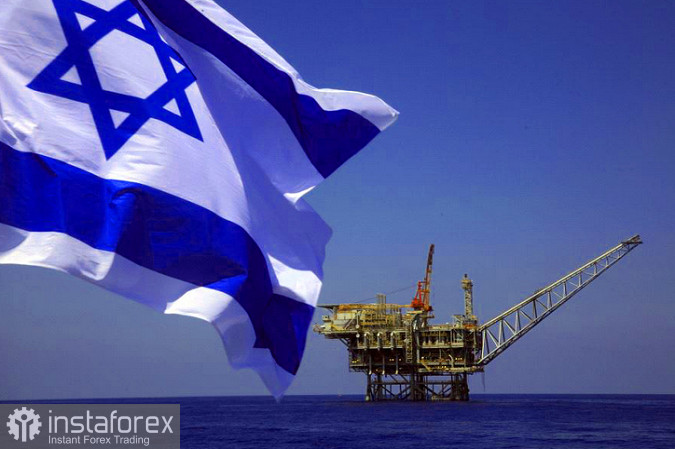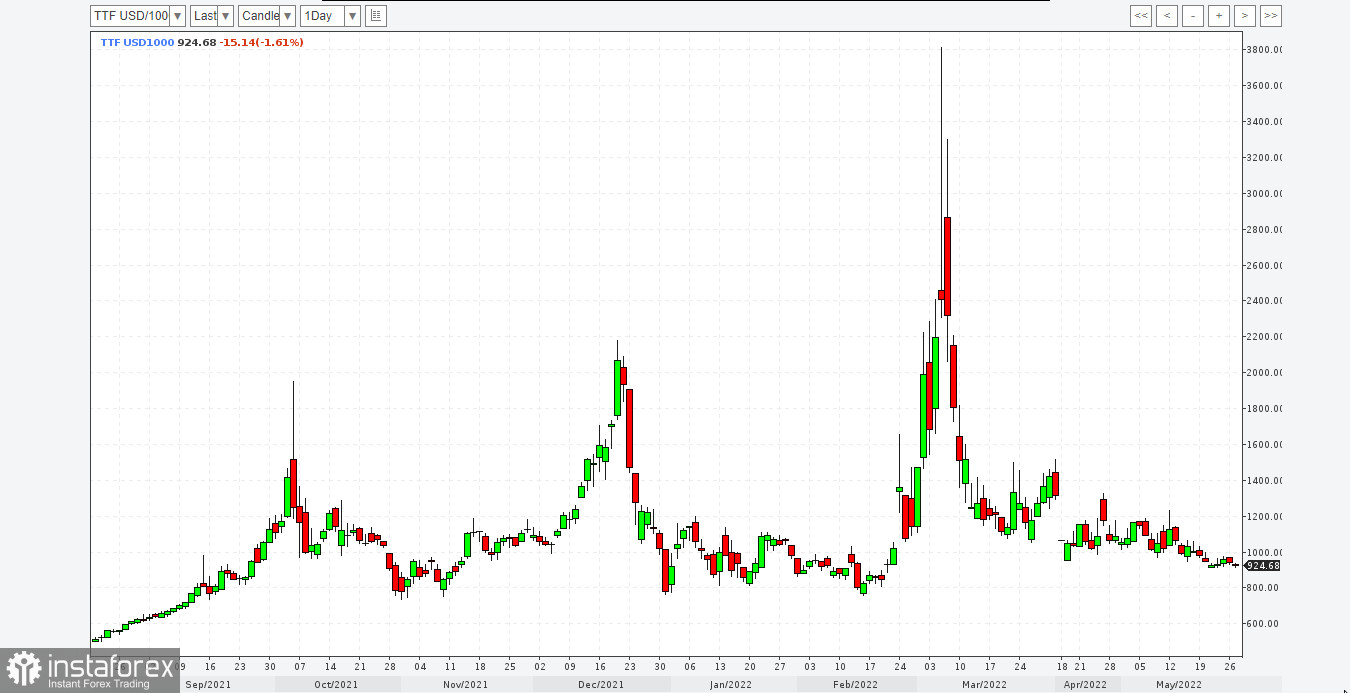
The European Union is working on a deal to import Israeli gas through Egypt. The fuel would be turned into liquefied natural gas at Egypt's processing plants before being shipped to the EU.
Israel has abundant offshore natural gas reserves and has been looking to expand its international presence in the gas market. Over the next two years, Israel plans to double its current production rate to some 40 billion cubic meters, with Europe the most logical expansion target, according to reports from earlier this year.
Against this background, gas prices in Europe continue to decline and are now trading below $1,000:

"The hope is to create a relatively fast working process and already during the summer to reach a framework agreement," Lior Schillat, the director-general of Israel's Energy Ministry, said.
This week, the Israeli Energy Ministry announced it was in talks with the European Union, following a March meeting between Energy Minister Karine Elharrar and the European Commissioner for Energy, Kadri Simson.
According to an Israeli Energy Ministry spokesman, the EU representatives at that meeting had told the Israeli side that if they could not find sufficient amounts of natural gas to replace Russian deliveries, they would return to coal mining, despite the great environmental damage caused by it.
Israel's proven gas reserves stood at 921 billion cubic meters before the latest discovery, made by British Energean, which found an estimated 60 billion cubic meters of gas in an offshore block.
In contrast, domestic consumption is not expected to exceed 500 billion cubic meters over the next 25 years, Al-Monitor reported last week.
Anyway, Israeli gas will not start flowing this year. That means the EU will have to look elsewhere for urgent replacements for Russian gas. According to Ministry of Energy Lior Shilat, the earliest time when Israel would be able to start delivering gas to Europe via Egypt would be 2024.
 Tiếng Việt
Tiếng Việt 
 Русский
Русский English
English Bahasa Indonesia
Bahasa Indonesia Bahasa Malay
Bahasa Malay ไทย
ไทย Español
Español Deutsch
Deutsch Български
Български Français
Français 中文
中文 বাংলা
বাংলা हिन्दी
हिन्दी Čeština
Čeština Українська
Українська Română
Română

